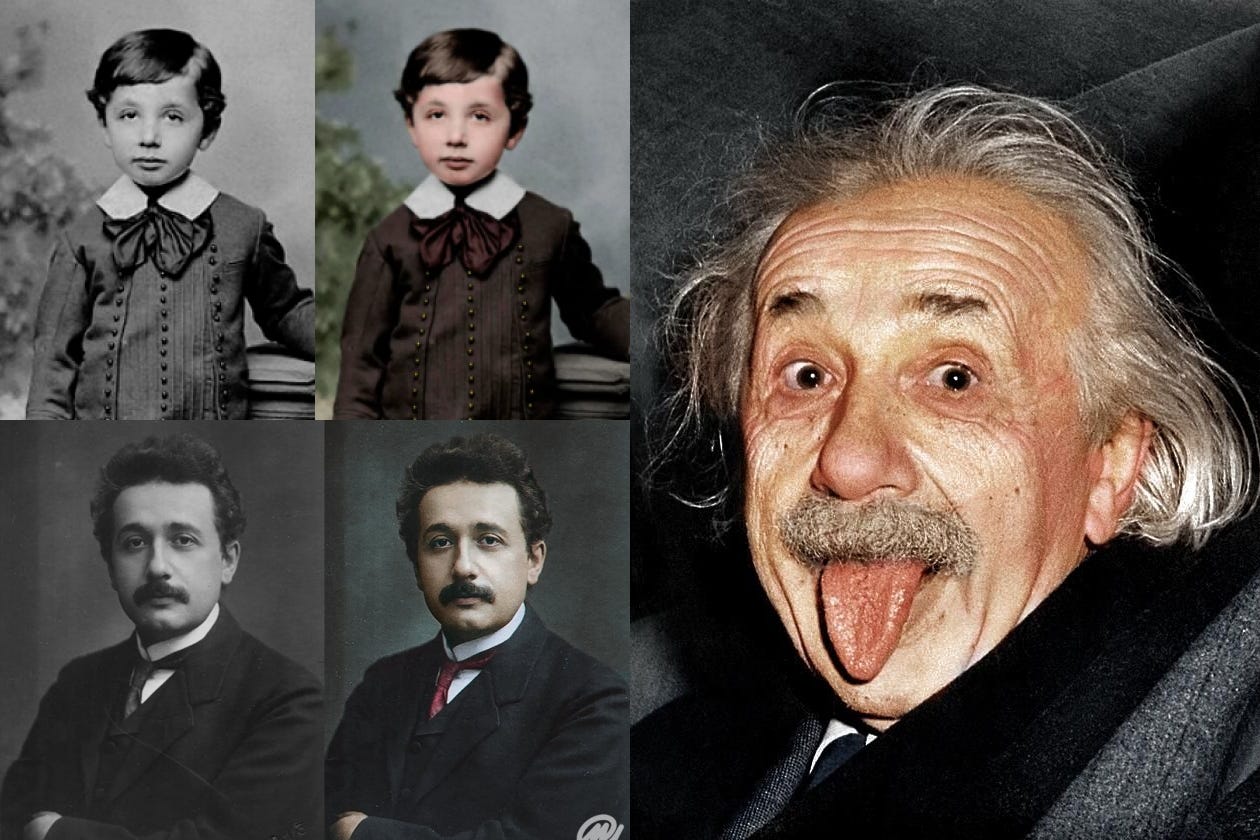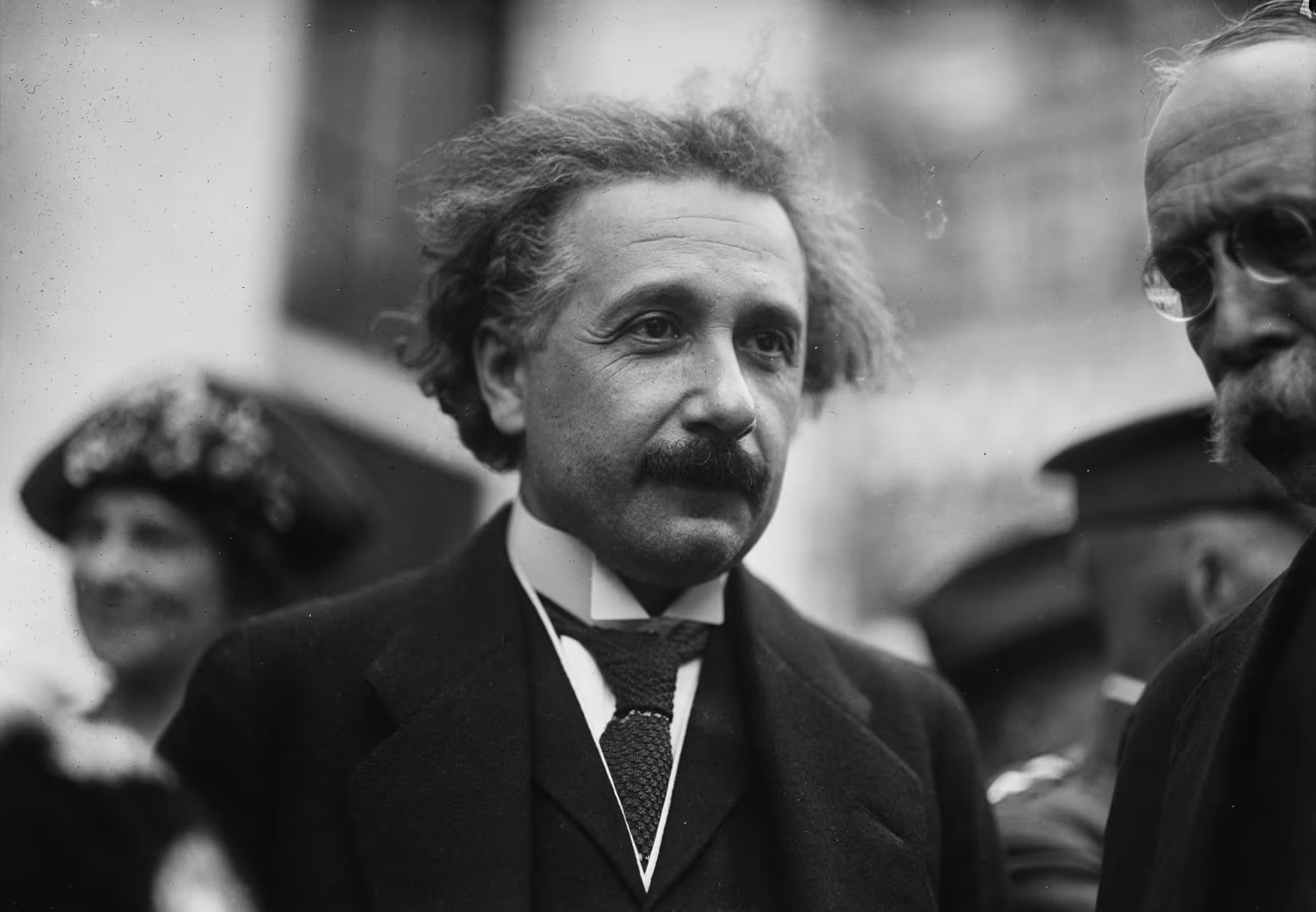Table of Contents
Introduction to Young Albert Einstein
Albert Einstein is celebrated for his profound contributions to physics, including the theory of relativity and the famous equation E=mc². However, before he became a household name, young Albert Einstein showed signs of brilliance and curiosity that laid the foundation for his future achievements. This article delves into the early years of young Albert Einstein, exploring his childhood, education, and the factors that contributed to his exceptional intellect.
Early Childhood of Young Albert Einstein

Albert Einstein was born on March 14, 1879, in Ulm, within the Kingdom of Württemberg in the German Empire. His parents, Hermann Einstein and Pauline Koch, were Jewish. Hermann, an electrical engineer and salesman, and Pauline, from a family of merchants, provided a nurturing environment that encouraged Albert’s intellectual curiosity from a young age.
As a child, young Albert Einstein exhibited a deep fascination with the world around him. His curiosity was evident in his early attempts to understand complex concepts and phenomena. Despite common misconceptions, his academic performance in primary school was generally good, though he struggled with subjects that did not engage his interest.
Family Influence on Young Albert Einstein

Young Albert Einstein’s family played a significant role in shaping his early intellectual development. His father’s work in electrical engineering exposed him to scientific ideas and innovations. Additionally, Albert’s mother, Pauline, was supportive of his educational interests, fostering an environment that encouraged exploration and learning.
Einstein’s family environment was instrumental in nurturing his curiosity and encouraging his passion for science. The early exposure to scientific discussions and ideas at home provided a strong foundation for his later work.
Education of Young Albert Einstein
At the age of six, Albert Einstein began his formal education at the Luitpold Gymnasium in Munich. While he excelled in subjects like mathematics and natural sciences, he found the rigid structure of the school system less conducive to his learning style. His disinterest in subjects such as Latin and Greek contrasted sharply with his enthusiasm for mathematics and physics.
Despite his dissatisfaction with the educational system, young Albert academic prowess was apparent. He demonstrated a natural aptitude for mathematics, often solving complex problems with ease. This early proficiency in mathematics was a clear indicator of his future potential in the field of science.
Signs of Brilliance in Young Albert Einstein
Albert Einstein’s brilliance was evident in several ways. At the age of twelve, he independently studied Euclidean geometry, a subject typically introduced at a later stage in education. His early discovery of this mathematical concept highlighted his exceptional intellectual capabilities and his eagerness to delve into advanced topics.
Moreover, Einstein’s encounter with the works of James Clerk Maxwell, a prominent physicist, had a profound impact on him. Maxwell’s equations, which describe electromagnetism, captivated young Albert and significantly influenced his future scientific work. This early exposure to groundbreaking theories contributed to his development as a scientist.
The Move to Switzerland and Its Impact on Young Albert Einstein
In 1894, due to financial difficulties, the Einstein family moved to Milan, Italy. Albert, then a teenager, remained in Munich to complete his schooling. However, his dissatisfaction with the German educational system led him to leave the Luitpold Gymnasium in 1896.
Einstein’s move to Switzerland marked a pivotal moment in his life. He enrolled at the Swiss Federal Polytechnic in Zurich, where he pursued a degree in mathematics and physics. This transition provided him with a more flexible and supportive educational environment, allowing him to focus on his areas of interest.
Influential Mentors of Young Albert Einstein
During his time at the Polytechnic, young Albert Einstein was introduced to several influential mentors who significantly impacted his intellectual development. One of his key mentors was Hermann Minkowski, a mathematician who introduced Einstein to the concept of four-dimensional spacetime. Minkowski’s ideas would later play a crucial role in Einstein’s formulation of the theory of relativity.
Einstein’s interactions with his professors were characterized by both respect and independent thinking. While he valued their guidance, he was also known for challenging established ideas and norms. This blend of respect and skepticism was crucial in shaping his future contributions to science.
Challenges and Early Career of Young Albert Einstein
After graduating from the Polytechnic in 1900, young Albert Einstein faced significant challenges in finding a stable academic position. His initial job search was unsuccessful, leading him to work in various temporary roles, including a position at the Swiss Patent Office in Bern.
Despite these challenges, Einstein continued to develop his scientific ideas. His time at the Patent Office provided him with ample opportunities to think about and refine his theories. In 1905, he published a series of papers known as the Annus Mirabilis papers, which included his theory of special relativity and the equation E=mc². These groundbreaking papers marked the beginning of his rise to prominence and established him as a significant figure in the scientific community.
Personal Life and Family of Young Albert Einstein
Einstein’s personal life also played a role in his early career. In 1903, he married Mileva Marić, a fellow student from the Polytechnic. The couple had two sons, Hans Albert and Eduard. Their marriage, however, faced difficulties, leading to their eventual divorce in 1919.
Einstein’s personal experiences and relationships influenced his professional journey. The support and challenges he encountered in his personal life contributed to his development as a scientist and thinker.
The Legacy of Young Albert Einstein
The early years of young Albert Einstein’s life were marked by curiosity, intellectual achievement, and personal challenges. His experiences during these formative years laid the foundation for his future successes and established him as one of the most influential scientists of the 20th century.
Young Einstein’s journey from a curious student to a groundbreaking physicist highlights the importance of nurturing intellectual curiosity and perseverance. His contributions to science, particularly his theories of relativity and quantum mechanics, have had a lasting impact on our understanding of the universe.
Conclusion
The story of young Albert Einstein is a testament to the power of curiosity, determination, and intellectual exploration. His early years, characterized by both achievements and challenges, played a crucial role in shaping his future contributions to science. As we reflect on the remarkable early life of Albert Einstein, we gain insight into the factors that contributed to his exceptional intellect and enduring legacy in the world of science.
Please Visit This Website Mindmeister.
DMCA koruma Google SEO, işimizi büyütmek için mükemmel bir araç. https://www.royalelektrik.com/aydinli-elektrikci/
Your blog has quickly become one of my favorites. Your writing is both insightful and thought-provoking, and I always come away from your posts feeling inspired. Keep up the phenomenal work!
Hey there You have done a fantastic job I will certainly digg it and personally recommend to my friends Im confident theyll be benefited from this site
Nutra Gears Good post! We will be linking to this particularly great post on our site. Keep up the great writing
Usually I do not read article on blogs however I would like to say that this writeup very compelled me to take a look at and do so Your writing taste has been amazed me Thanks quite nice post
Its like you read my mind You appear to know so much about this like you wrote the book in it or something I think that you can do with a few pics to drive the message home a little bit but other than that this is fantastic blog A great read Ill certainly be back